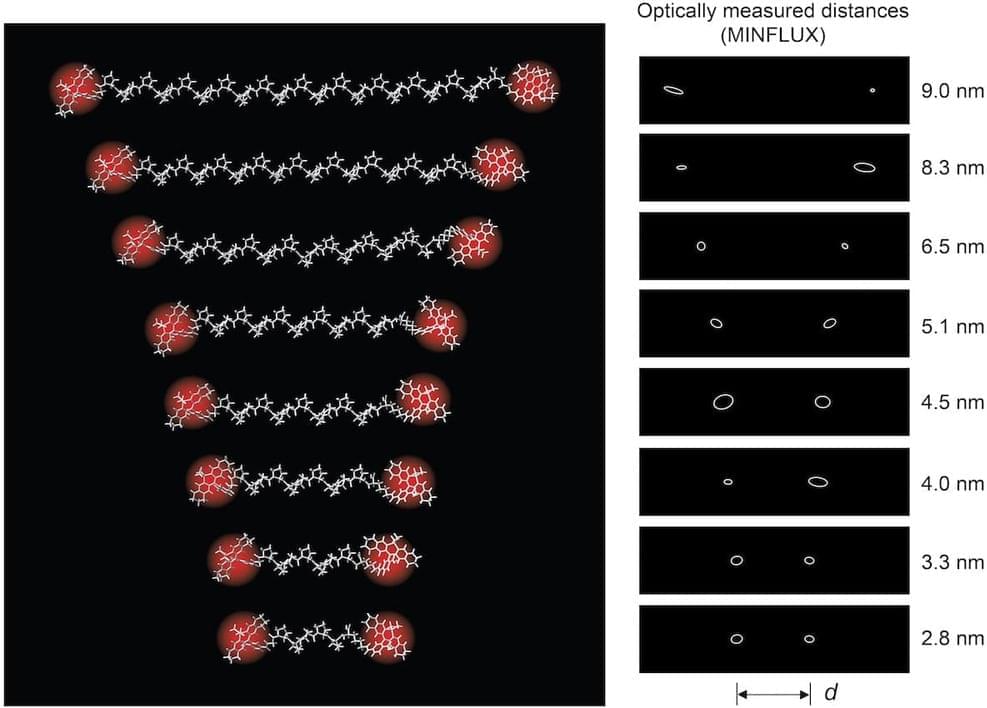Physicists in Germany have used visible light to measure intramolecular distances smaller than 10 nm thanks to an advanced version of an optical fluorescence microscopy technique called MINFLUX. The technique, which has a precision of just 1 angstrom (0.1 nm), could be used to study biological processes such as interactions between proteins and other biomolecules inside cells.
In conventional microscopy, when two features of an object are separated by less than half the wavelength of the light used to image them, they will appear blurry and indistinguishable due to diffraction. Super-resolution microscopy techniques can, however, overcome this so-called Rayleigh limit by exciting individual fluorescent groups (fluorophores) on molecules while leaving neighbouring fluorophores alone, meaning they remain dark.
One such technique, known as nanoscopy with minimal photon fluxes, or MINFLUX, was invented by the physicist Stefan Hell. First reported in 2016 by Hell’s team at the Max Planck Institute (MPI) for Multidisciplinary Sciences in Göttingen, MINFLUX first “switches on” individual molecules, then determines their position by scanning a beam of light with a doughnut-shaped intensity profile across them.




